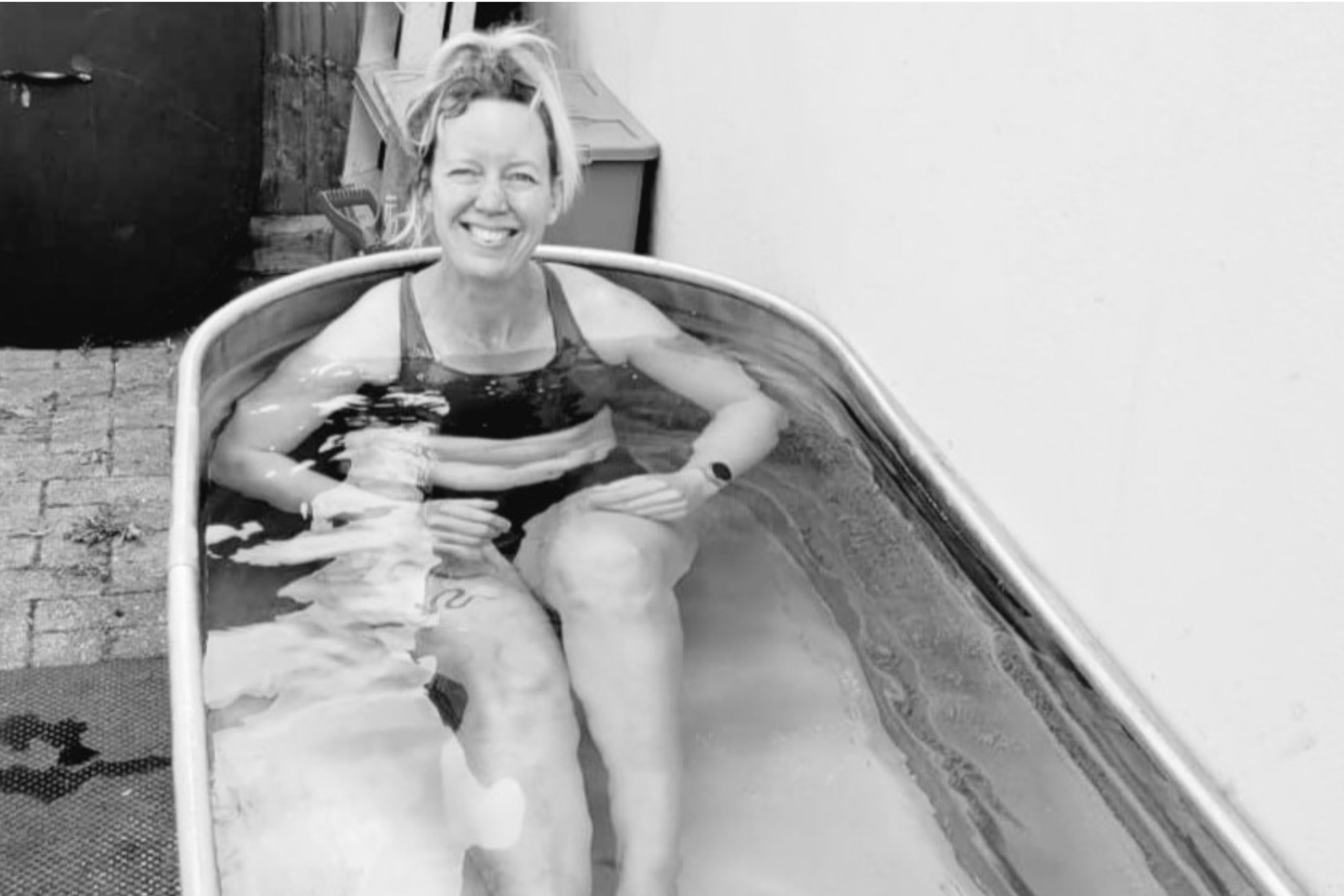Yes, it does!!!! FINALLY, the research is getting out there –
Cold Water helps #menopause symptoms! It’s time to embrace the chill!❄
According to a recent study, the effects of cold-water swimming were so marked that it may provide an alternative solution for women struggling with menopause and encourage more women to take part in sports.
The benefits of cold-water swimming extend beyond menopause, as it can also be a powerful tool to support #mentalhealth. I have personally seen significant results and improved fitness through cold-water swimming. Cold-water swimming helped me get back to #crossfit at a time when I was struggling!
I encourage not just those who are perimenopausal, but everyone to take the plunge!
Menopause can bring about various challenges for some women, including hot flushes, mood swings, and disrupted sleep. To tackle these symptoms, cold water can be a refreshing and effective solution. Here are some surprising benefits of cold-water therapy for menopause:
Hot Flushes: The sudden and intense feelings of heat known as hot flushes can be alleviated by cold water. Taking a cold shower, bath or swim can help regulate body temperature and reduce the severity and duration of hot flushes.
Sleep Quality: Menopause can affect sleep patterns, causing insomnia and restless nights. Taking a cold shower or bath before bedtime can lower the body’s core temperature, signalling it’s time to rest and potentially improving sleep quality.
Mood: Hormonal changes during menopause can lead to mood swings and increased stress levels with the rise of Cortisol during Menopause. Cold water exposure triggers the release of endorphins, the body’s natural feel-good hormones, improving mood and reducing stress.
Aches and Pains: Menopause can also bring about changes in bone density and joint health. Cold water therapy has anti-inflammatory properties, reducing pain and swelling. Incorporating cold water activities like aquatic exercises or cold compresses can provide relief from joint and muscle discomfort.
Boosting Energy and Clarity: Menopause symptoms can be draining both physically and mentally. Cold water immersion can increase alertness and boost energy levels, acting as a natural stimulant and promoting a more invigorated outlook on the day.
It’s important to consult with a healthcare professional and customise approaches to individual needs. Cold water therapy can be a refreshing and impactful tool for managing menopausal symptoms, providing a simple yet effective solution for women seeking relief during this transitional phase of practiced safely!
If you want your own back garden plunge head over to Submerge Ice Baths | Affordable and convenient cold water immersion. and use the code RPM15 for 15% discount!
Research References:



